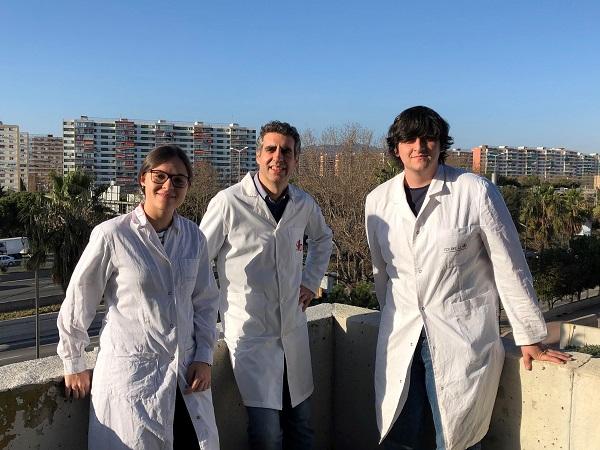Cheap energy for the tumor cell

Credit: UNIVERSITY OF BARCELONA
It has been known for decades that cancer cells have an altered metabolism and it is seen in several biochemical pathways and in particular, in the way they get energy for their survival.
If healthy cells use the mitochondrial respiratory chain, tumors use aerobic glycolysis, a process that allows them taking energy quickly but depending on glucose. This phenomenon -known as the Warburg effect- is caused by several changes that take place during cell transformation.
Now, a new article describes an epigenetic injury found in human tumours which created this altered path to take energy from the cancer. The study, published in Journal of Clinical Investigation Insight, is a new research carried out by the group led by Manel Esteller, professor of Genetics of the Faculty of Medicine and Health Sciences of the University of Barcelona (UB), ICREA researcher, coordinator of the Cancer Epigenetics and Biology Program at IDIBELL, and director of the Josep Carreras Institute.
According to Professor Esteller, who led the new scientific study, “we found squamous tumors -in the head, neck, esophagus and cervix- show activity loss of the SVIP gen, which prevents deterioration of proteins that are important for cell balance. The fault in the SVIP gene function causes the destruction of the metabolic mechanisms that allow glucose’s physiologic use to get energy in a controlled way, and which is finally replaced by a kind of molecular “fast food” that gets cheap energy for the tumor cell”.
“We have also seen patients with this metabolic change that show a shorter survival over the course of their disease”, continues Manel Esteller. “However, cancer cells’ addiction to glucose could be their weakness. Therefore, pre-clinical studies show that patients with the epigenetic loss of the SVIP gene are sensitive to drugs against glucose receptor, which block the entrance of this molecule and cause a kind of ‘abstinence syndrome’ of the tumor that holds their growth back”.
###
Participants in the new study, with its main authors being Pere Llinàs Arias and Margalida Rosselló Tortella (IDIBELL), are the experts Marta Cascante and Sílvia Marín, from the Faculty of Biology of the UB, the Institute of Biomedicine of the UB (IBUB) and the Liver and Digestive Diseases Networking Biomedical Research Centre (CIBEREHD); Antonio Zorzano, from the Faculty of Biology of the UB, the Institute for Research in Biomedicine (IRB Barcelona), and the Diabetes and Associated Metabolic Diseases Networking Biomedical Research Centre (CIBERDEM), and Juan P. Muñoz (Faculty of Biology of the UB, IRB Barcelona and CIBERDEM, among others).
Media Contact
Rosa Martínez
[email protected]
Original Source
https:/
Related Journal Article
http://dx.




